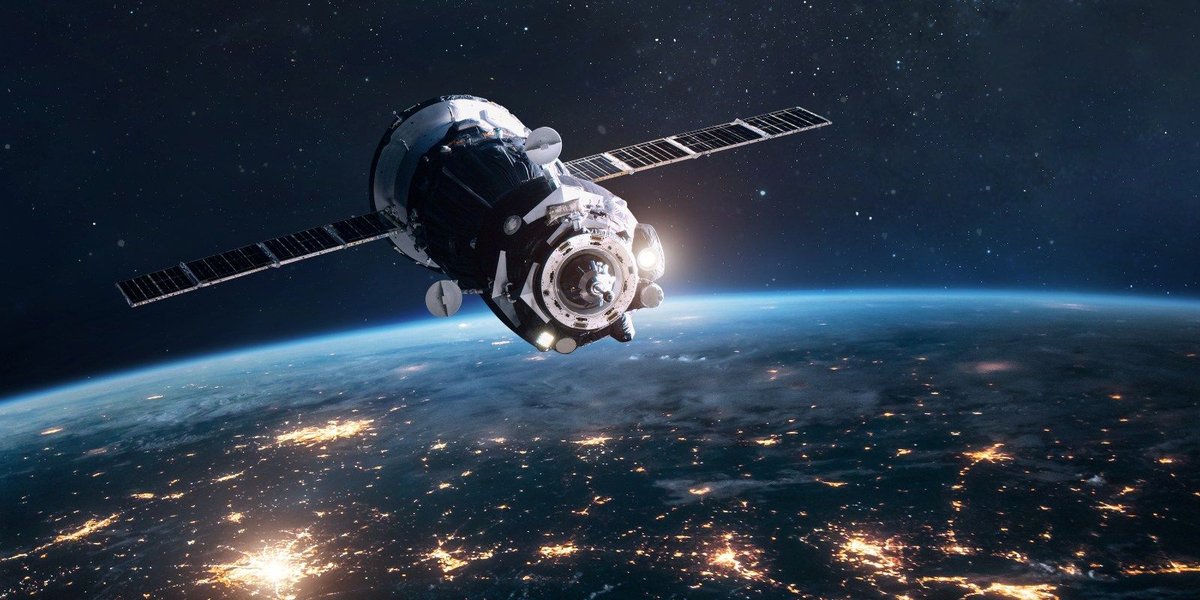SPACE COMMAND POINTS OUT THESE MAJOR MILITARY SATELLITE VULNERABILITIES
By Buddy Blouin

Advertisement
Since 1962, the military satellite has been a staple of the American Armed Forces. Though its function has evolved with time as technology has improved, our many branches rely on military satellites to relay important communication and information among troops. But not all is well with our current situation. There are growing concerns about many functions involving satellites operated by the U.S. as well as the logistics to maintain them and the future capabilities of not only our own fleet but also those of other nations.
Read next: Space Force Is Now Responsible for All Military Satellite Communication
Current Military Satellite Limitations Worry Space Command
There are obvious and not-so-obvious limitations to having a satellite in space when it comes to maintaining it. But it’s still alarming to see that U.S. Space Command believes U.S. military satellites need to get smarter and more self-reliant. The U.S. Space Command is being tasked with looking out for space debris and detecting electronic warfare from our enemies. In order to do so, they're saying they’ll need new equipment. Specifically, in terms of military satellites that can use AI, this means they need to conduct advanced maneuvering and be fueled in a much more efficient manner. Sensors on Earth have been handling a lot of the monitoring the U.S. military is now asking of its satellites, but warfare is evolving, and this is a natural step forward to keep up for the United States. “There is the need to really understand…pattern of life of those active capabilities, and using the most predictive analytics to understand what may happen next, or to look for change detection in that environment,” said deputy commander of U.S. Space Command, Lt. Gen. John Shaw.How Does the Military Use Satellites?
Every branch of the military relies on satellites for a wide range of reasons. Here are some of the biggest functions a military satellite will perform for the U.S. military:- Recon and gather vital information, such as military satellite images.
- Communication among troops. This function continues to also grow as communication among machines is spreading thanks to AI and machine learning (ML).
- Tracking the weather.
- GPS and other forms of navigation.
- Military satellites help the U.S. with missile tracking and monitoring.
- The ongoing exploration of space as well as research and development.
Advertisement
Russian Satellites and the Future of Space Warfare
Think back to what Lt. Shaw said, “...pattern of life...” Although it may seem a bit odd to the civilian eye, it's a common message heard throughout the military. This has been used to refer to terrorist cells when monitoring them and assessing their movements or lack thereof in reference to a potential threat. Now, the military is using it to describe potential threats that come from other nations. Only this time, the warzone is in orbit above all of our heads. A prime example is the Cosmos 2543 satellite created by Russia. This military satellite is capable of successfully shooting and destroying other satellites. Before the invasion of Ukraine, Russia used a coordinated attack on Viasat in an act of cyber warfare that didn’t technically use satellites but showed the nation’s willingness to engage in such a fashion. There have been other Russian satellites that give the U.S. similar concerns throughout the years, only compounding the fact that America needs to continue to advance its technology to keep pace with rival states.Could the Private Sector Fix the Military Satellite Problem?
The Pentagon's bridge to tech's private sector is a natural occurrence as the need for more military satellites continues to grow at the same time the capabilities of private companies are also growing. It wasn’t too long ago that nobody went to space. Now, we have multiple billionaires creating a new-age space race by offering transportation, experiences, and services to consumers. The future of space is complex even when large figures and semi-celebrity personas give support. But the U.S. military outsourcing such needs is nothing new. Today, you can point to many weapons manufacturers, but the big guns, all puns intended, are going to bring heavy hitters, such as Boeing, Lockheed Martin, and Raytheon, to the forefront of the conversation. This isn’t necessarily a bad thing, and it helps support what the future of space travel will likely be. Large, capable companies, such as SpaceX, Blue Origin, and Virgin Galactic, can work with government contracts to provide innovative solutions to an emerging space conducive to warfare. We have plenty of problems facing the military satellite, but we also have many solutions around the corner. Time will tell how it all plays out, but it doesn’t take a rocket scientist to see that American ingenuity is ready to answer the call. Read next: What's the Story Behind the Space Force Flag?Join the Conversation
Written by
Buddy Blouin
Buddy Blouin is a Contributing Writer at VeteranLife.com
Buddy Blouin is a Contributing Writer at VeteranLife.com
Advertisement
SHARE:



